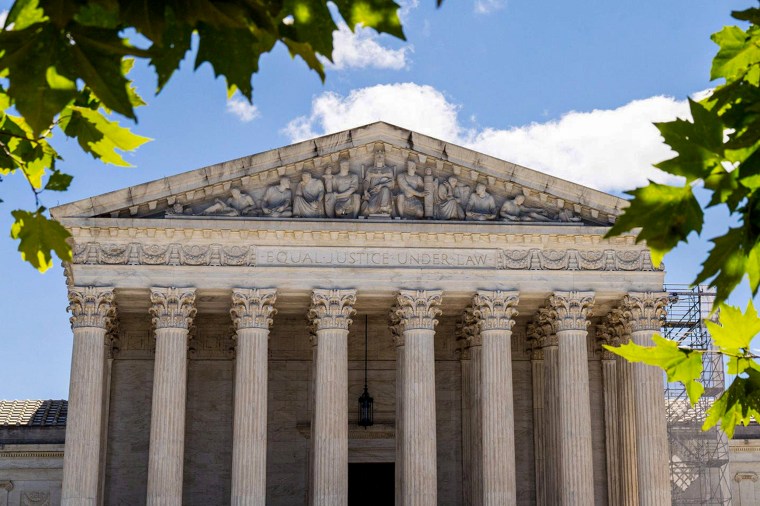WASHINGTON — Delving into the latest in a series of religious rights cases, the Supreme Court on Monday appeared sympathetic to a claim brought by Catholic-affiliated charitable groups that they were wrongly denied religious exemptions from a state tax that funds unemployment benefits.
Both conservative and liberal justices seemed concerned that the state's test for determining whether a group could get the exemption unlawfully discriminates against different entities based on their religious beliefs under the Constitution's First Amendment.
Although the state allows exemptions for churches and associated nonprofits, the Wisconsin Supreme Court concluded that the groups operating under the umbrella of the Catholic Charities Bureau of the Diocese of Superior were not sufficiently religious in purpose to receive the same treatment.

The groups in question — Headwaters, Barron County Developmental Services, Diversified Services and Black River Industries — primarily serve developmentally disabled people. The programs are open to non-Catholics.
The groups argue that their rights have been violated under the First Amendment's free exercise clause, a provision that has long been interpreted to exempt religious institutions from taxation.
During Monday's oral argument, several justices indicated they agreed with that view.
"I thought it was pretty fundamental that we don't treat some religions better than other religions," liberal Justice Elena Kagan said.
Conservative Justice Neil Gorsuch asked, "Isn’t it a fundamental premise of our First Amendment that the state shouldn’t be picking and choosing between religions?"
The heart of the issue is that the Wisconsin test delves too much into the specifics of religious faith and would potentially allow some religious groups to obtain the exemption but not others simply because of how their religious doctrine.
For example, the state says religious entities that proselytize would qualify for the exemption, which cuts against religions that do not proselytize including the Catholic Church.
To illustrate the point, Gorsuch wondered about a situation in which a soup kitchen is feeding the poor and the state wants to determine whether it can qualify for the exemption based on whether religious activity is taking place.
Gorsuch indicated that such a situation would defeat the state's goal of avoiding excessive entanglement with religion.
"Doesn’t it entangle the state tremendously when it has to go into a soup kitchen, send an inspector in, to see how much prayer is going on?" he asked.
The court has a 6-3 conservative majority that is sympathetic to religious claims and has in a series of recent cases strengthened the free exercise clause.
The Wisconsin Labor and Industry Review Commission found that the charitable groups were not “operated primarily for religious purposes” under state law.
The Wisconsin Supreme Court last year upheld the state commission’s finding, saying the groups’ activities were mostly secular in nature and that they do not “attempt to imbue program participants with the Catholic faith nor supply any religious materials.”
The Wisconsin unemployment compensation system was set up in 1932 to provide a safety net for people who lose their jobs. Similar programs in other states and the Federal Unemployment Tax Act also include religious exemptions.
Various groups representing different Christian sects and other religious faiths have backed the Catholic groups in the case, as has the Trump administration.
